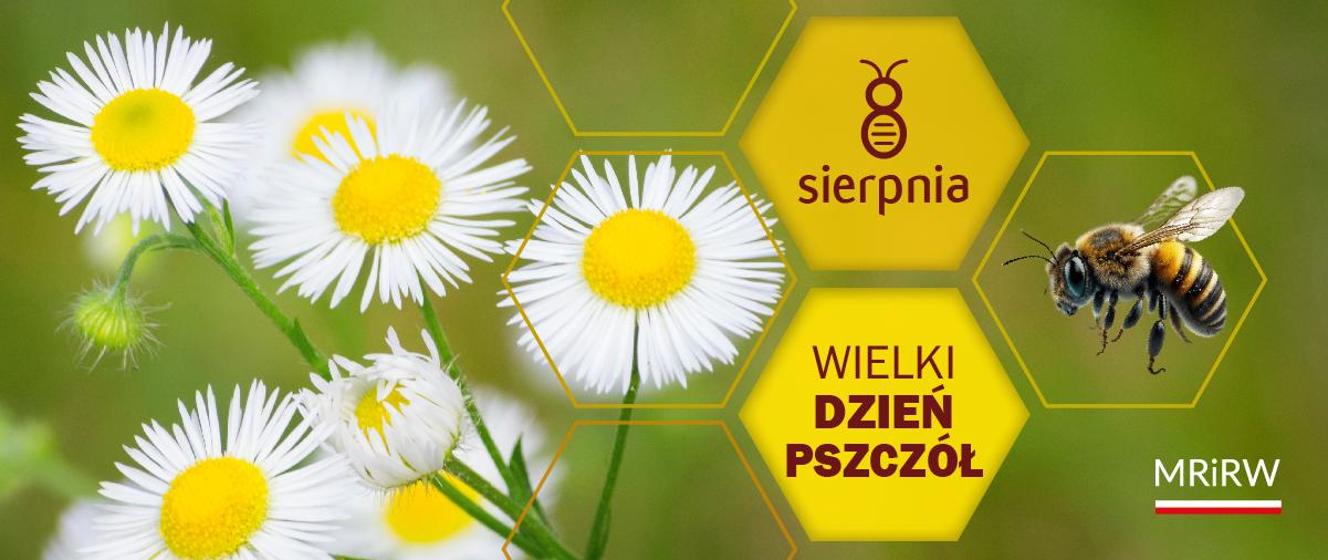Learn about the significance of bees in our ecosystem, the alarming decline in their populations, and how you can help protect these essential pollinators. Discover why Poland celebrates Great Bee Day every August 8th.

The Importance of Bees
Most of us don’t realize just how much we depend on bees and how much we owe them. Bees are not just the insects responsible for the honey on our grocery shelves. They include fuzzy bumblebees and solitary bees—amounting to around 20,000 species in total. All of these species were celebrated on Thursday, August 8th, during Great Bee Day in Poland.
Bees: A Few Facts
Bees have been on Earth for over 50 million years, and their role in maintaining the balance of the Earth’s ecosystem is greater than most of us think.
It’s worth noting that:
- Bees are responsible for pollinating around 70% of the world’s crop species.
- They ensure better quality fruits and vegetables.
- They increase crop yields.
- Some species (like almonds) wouldn’t bear fruit at all without the work of bees.
- Bees pollinate not only cultivated plants but also wild plants that form various terrestrial ecosystems. These plant communities, in turn, produce oxygen essential for life.
What If Bees Disappeared?
The extinction of bees would have dramatic consequences for humans and the entire natural environment of Earth. This process, however, has already begun. The problem is now worldwide and poses a massive challenge, not only for beekeepers but for all of us.
Causes of Bee Decline
The worrying process of bee decline has been ongoing for almost 20 years, but for about the last 10 years, losses in bee colonies have begun to raise serious concerns among beekeepers.
According to scientists, it is highly likely that the decline of bees is caused by:
- Pesticides, which cause changes in the nervous system of bees;
- Bee diseases;
- Pests, fungi, mites, and viruses;
- Climate change;
- Nutritional deficiencies;
- Modern agricultural methods (in addition to pesticides): Monoculture crops pose a huge problem for wild bees—lack of hedgerows, field trees, old trees, slopes, and field stone piles means there are no hiding places or nesting sites; moreover, agricultural biodiversity is decreasing, and there are fewer places where various nectar-bearing plants can grow.
According to scientific research, the main suspect for the losses in bee colonies is pesticides, particularly insecticides.
How Can We Help?
Helping pollinating insects is simpler than it may seem. Most of us can do it. To support bee conservation:
- Plant honey-bearing plants that provide nectar and pollen—in your garden, on your balcony, in unused land, along hedgerows, or even on neglected lawns. Seeds or ready-made mixes can be bought at any garden store. Do this at various times of the year.
- If you have a garden, leave part of it wild, with meadow plants that provide nectar and places where insects can nest.
- Don’t burn leaves and grass—they are nesting sites and hiding places for many insects.
- Don’t till the soil in your garden too often. Many insects nest in it.
- Prepare a watering spot for bees. It can simply be a container with water and stones or sticks where insects can stand to drink.
- Avoid insecticides and pesticides toxic to bees. Choose natural plant protection products.
- Choose organic farming products free of GMOs. Try to buy local products from nearby areas or at least produced in the European Union. The EU currently has restrictions on the use of neonicotinoids and fipronil.
- Read labels and buy honey from certified or trusted local farmers. Avoid buying honey labeled “from outside the European Union”—outside the EU, there are no restrictions on the use of bee-harmful insecticides.
- Buy or build a home for wild bees yourself. Instructions can be found online.
- Talk to family and friends about the importance of bees and their decline. Encourage them to take action for bees.
- Educate children, engage them in the life of bees. Act together as a family—you can observe bees together and take steps to support them. You can find inspiration online.
Government Support for Beekeepers
The beekeeping sector in Poland receives over 10 million euros annually to reimburse the costs incurred by beekeepers. This aid comes from the Strategic Plan for the Common Agricultural Policy for 2023-2027 (CAP 2023-2027).
Additionally, the Polish government provides the beekeeping sector with de minimis aid. The aid rate is 50 zł per overwintered bee colony. In 2024, 80 million zł has been allocated to beekeepers under this aid.
The institution that provides support to beekeepers is the Agency for Restructuring and Modernization of Agriculture (ARiMR).
The Honey Market in Poland
Poland is a significant honey producer in the European Union, with a steadily growing number of beekeepers and bee colonies—over 97,000 beekeepers and more than 2.3 million bee colonies were recorded in 2023. Both 2022 and 2023 were years of record honey harvests in Poland, with 24,000 and 27,400 tons of honey collected, respectively. Good honey harvests were also reported across the EU.
As we reflect on Great Bee Day and the importance of these industrious insects, it’s crucial that we take steps to protect them. Our future depends on the survival of bees, and with collective effort, we can ensure they continue to thrive.
